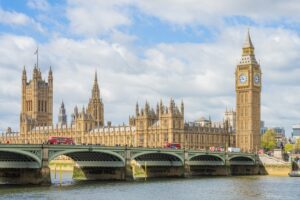Ministers are to be granted new powers to compel pension funds to invest in British assets, under plans set to be announced in the Pension Schemes Bill on Thursday — a move expected to spark controversy within the retirement savings industry.
The government will introduce a “reserve power” that allows it to set binding asset allocation targets for workplace pension schemes. This would effectively give ministers the authority to dictate that a proportion of pension contributions must be directed into UK-based investments, including infrastructure, private equity, and start-ups.
The announcement forms part of a broader package of pension reforms designed to unleash billions of pounds in long-term capital into the UK economy. It follows the Mansion House Accord, a voluntary agreement reached in July between the Treasury and 17 of the UK’s biggest defined contribution pension providers to invest an estimated £25 billion in UK private assets by 2030.
While the accord was hailed as a step forward in aligning retirement savings with national economic priorities, the government had already signalled its intent to back the initiative with more forceful measures if needed. The Treasury confirmed on Wednesday night that the new reserve power will be included in legislation “to provide additional certainty” that individual pension schemes will not lose business by taking on the higher up-front costs associated with private market investments.
A Treasury spokesperson said: “The Mansion House Accord shows defined contribution schemes are voluntarily investing more in infrastructure and businesses. But to support further certainty and ensure fairness across the sector, the government will take a reserve power to set asset allocation targets if necessary.”
While ministers insist they do not intend to use the power unless absolutely required, its very existence is likely to alarm some in the pensions industry, which has long warned against government interference in fiduciary investment decisions.
Dame Amanda Blanc, chief executive of Aviva — one of the Accord’s signatories — recently described mandating investment as “a sledgehammer to crack a nut”, saying it could undermine trustees’ responsibility to act solely in the best interests of savers.
Industry critics argue that compelling pension schemes to invest in UK assets could expose savers to unnecessary risk, especially if those investments are politically motivated rather than commercially driven. There is also concern that it could create legal conflicts for trustees, whose duty under pensions law is to maximise returns for beneficiaries, not to pursue national economic policy.
Nevertheless, the new legislation will go beyond the reserve power. The Treasury is also set to unveil plans to consolidate the fragmented defined contribution (DC) sector. Smaller schemes will be encouraged or required to merge, creating fewer but larger pension funds that benefit from economies of scale and have greater capacity to invest in illiquid assets such as infrastructure and venture capital.
The £392 billion Local Government Pension Scheme (LGPS) will also be restructured. The government plans to pool its assets into megafunds of at least £25 billion each by the end of the decade, further aligning public sector pensions with broader economic goals.
The Treasury estimates that this consolidation could slash costs by £1 billion and deliver better outcomes for savers. For a typical worker who has been saving into a DC pension since the age of 22, the reforms could increase their retirement pot by around £6,000.
The bill will also include long-mooted proposals allowing employers to access surpluses in defined benefit (DB) schemes. In theory, this could unlock tens of billions of pounds in trapped capital — funds that could be reinvested in British businesses or used to support job creation.
Chancellor Rachel Reeves said: “We’re making pensions work for Britain. These reforms mean better returns for workers and billions more invested in clean energy and high-growth businesses.”
TheCityUK, the financial sector’s main lobby group, welcomed the reforms in principle but stressed the need for caution. Chief executive Miles Celic said: “It is hugely important to encourage and support people to best prepare for their retirements. Properly enabled, investments from pension funds into UK productive assets can also help drive economic growth. We will study the details of these proposals carefully and look forward to engaging with government on their implementation.”
With the pension reforms likely to be central to Labour’s wider economic strategy, the debate over the balance between public interest and trustee independence is set to intensify as the legislation progresses through Parliament.
Read more:
Ministers to gain power to mandate pension fund investment in UK assets


























